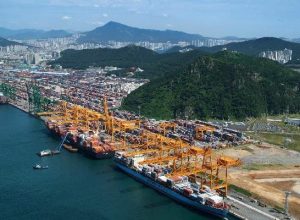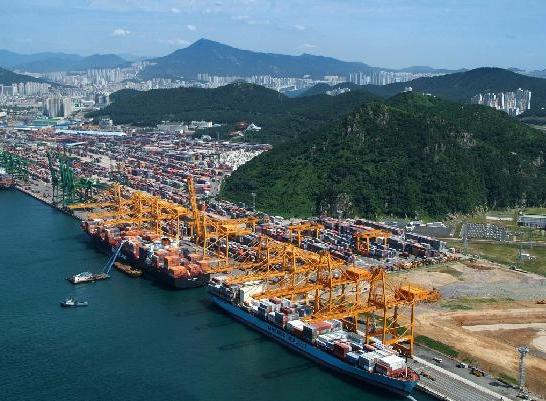 South Korea has announced ambitious expansion plans for Busan Port that will raise the box-handling capacity of the country’s maritime gateway by a wide margin.
South Korea has announced ambitious expansion plans for Busan Port that will raise the box-handling capacity of the country’s maritime gateway by a wide margin.
The government said it intends to add 15 more berths to Busan New Port located in the southern part to up its capacity by 15.8 million twenty-foot equivalent units (TEUs).
Under the plan, the proposed facilities will include container, feeder, and multipurpose terminals, and be constructed in stages depending on actual cargo demand.
The port is expected to handle 20 million TEUs this year, and the new development program will bolster efforts to make it the leading transshipment hub in northeast Asia, said Lim Ki-tack, president of Busan Port Authority (BPA), the governing body of Busan Port.
“Our aim is to continually develop the port and preempt the rapidly evolving maritime transport industry to ensure that the port of Busan remains a key part of the global logistics chain and a major contributor to the economic development of the region,” he said.
Busan New Port, whose development started in 1994, now has 22 berths, with eight more being constructed. Aside from additional berths, there is also a proposal to establish a liquefied natural gas bunkering facility by 2018.
At the same time, the government is looking to set up an inter-terminal transfer platform to facilitate truck operations around Busan Port with a view to cutting costs and facilitating cargo flow over the 25-kilometer distance between the old and new ports.
In March, Busan Port broke its old record for highest monthly cargo volumes processed. Container volume reached 1.63 million TEUs, a 1.9 percent increase year-over-year and the highest monthly figure ever, said BPA.
Similarly, cargo volume tallied in the first quarter of the year was also the highest quarterly record for the port. Processed were 4.7 million TEUs, a 5.7% increase compared to the same period a year ago.
Of the total, Busan New Port processed 3.1 million TEUs during the quarter, increasing 7.2%, while North Port handled 1.7 million TEUs, a 3.1% growth year-over-year.





